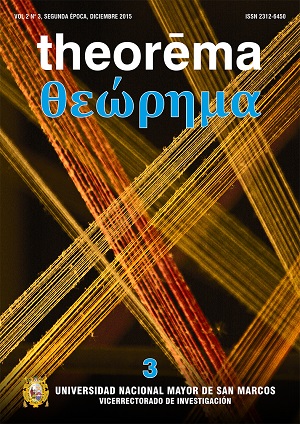Degradative profile on petroleum hydrocarbon and molecular identification of bacterial strains isolated from the Peruvian base “Machu Picchu” in Antarctica
Keywords:
Oil degraders, psychrophilic bacteria, petroleum fractions, Antarctica.Abstract
Antarctica is a highly vulnerable ecosystem. Due to the maritime traffic on this continent the threat of any oil spill is latent. Faced with this problem the bioremediation is the more supported technique. So this research is based on the characterization of the degradative profile of isolated bacterial strains of Antarctica to obtain potential consortia that can be applied to solve possible oil spills. In this study, we worked with 211 strains of which 43 had degradative-hydrocarbon activity. Of the 43 strains 63% (27 strains) degraded crude oil, 44% (19 strains) degraded vacuum residuum, 42% (18 strains) degraded paraffin and 37% (16 strains) degraded 84-octane gasoline. Regarding the number of fractions degraded 16% (7 strains) degraded 3 fractions and 9% (4 strains) could degrade the 4 fractions. These 11 strains to degrade 3 or 4 of the 4 fractions were identified molecularly: 9A2, 79Af1, 39B1, 60Bf2, 9A1 and 63B2 were identified as Pseudomonas putida; 63B1 was identified as Pseudomonas aeruginosa; 79Af2 as Lysinibacillus sp.; 39B2 as Aeromonas sp.; 95f as Paenibacillus lautus and 116B as Stenotrophomonas rhizophila.Downloads
Published
Issue
Section
License
Copyright (c) 2016 Fernando Merino Rafael, Diandra Martínez Cano, Susana Gutiérrez Moreno

This work is licensed under a Creative Commons Attribution-NonCommercial-ShareAlike 4.0 International License.

Theorema segunda época by Vicerrectorado de Investigación y Posgrado is licensed under a Creative Commons Reconocimiento-NoComercial-CompartirIgual 4.0 Internacional License.
Creado a partir de la obra en http://revistasinvestigacion.unmsm.edu.pe/index.php/Theo/index.
AUTHORS RETAIN THEIR RIGHTS:
a. Authors retain their trade mark rights and patent, and also on any process or procedure described in the article.
b. Authors retain their right to share, copy, distribute, perform and publicly communicate their article (eg, to place their article in an institutional repository or publish it in a book), with an acknowledgment of its initial publication in the Theorema segunda época.
c. Authors retain theirs right to make a subsequent publication of their work, to use the article or any part thereof (eg a compilation of his papers, lecture notes, thesis, or a book), always indicating the source of publication (the originator of the work, journal, volume, number and date).



